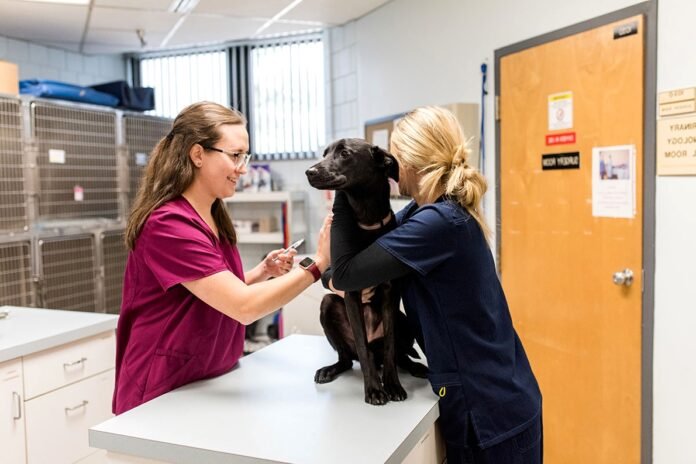When it comes to the care and treatment of animals, veterinarians are not alone. They rely on a team of skilled professionals to assist them in providing high-quality patient care. One of these essential team members is the veterinary technician.
Veterinary technicians, or vet techs for short, are trained professionals who work alongside veterinarians to provide medical care to animals.
In this article, we will explore who veterinary technicians are, what they do, and how they contribute to the health and well-being of animals.
Who are Veterinary Technicians?
Veterinary technicians are skilled professionals trained to assist veterinarians in providing medical care to animals. They work in various settings, including veterinary clinics, animal hospitals, and research laboratories. Veterinary technicians work closely with veterinarians, animal owners, and researchers to ensure that animals receive the best possible care.
To become a veterinary technician, one must complete a two-year associate degree program in veterinary technology from an accredited institution. This program includes animal anatomy and physiology coursework, medical terminology, pharmacology, and other related subjects. Veterinary technicians must also pass a certification exam to become credentialed.
Read More: Why the Word Allergy Makes Your Veterinarian Cringe
What Do Veterinary Technicians Do?
Veterinary technicians play a crucial role in the care and treatment of animals. They perform a variety of duties, including:
- Assisting veterinarians in exams and surgeries: Veterinary technicians help veterinarians by performing initial exams, restraining animals during procedures, and monitoring vital signs.
- Administering medications and treatments: Veterinary technicians are trained to help drugs and medicines to animals under the supervision of a veterinarian.
- Performing diagnostic tests: Veterinary technicians perform diagnostic tests, such as blood tests and X-rays, to help veterinarians diagnose and treat animals.
- Educating animal owners: Veterinary technicians educate animal owners on topics such as proper nutrition, exercise, and preventative care.
- Maintaining medical records: Veterinary technicians keep detailed medical records for each animal, including notes on exams, treatments, and medications.
- Providing nursing care: Veterinary technicians offer nursing care to animals in clinics or hospitals. This may include administering fluids, changing bandages, and providing physical therapy.
- Monitoring anesthesia: Veterinary technicians monitor animals under anesthesia during surgeries and other procedures.
Conclusion:
In conclusion, veterinary technicians are vital members of the veterinary team who assist veterinarians in diagnosing, treating, and caring for animals. They perform various duties, including assisting in exams and surgeries, administering medications and treatments, and educating animal owners.
Veterinary technicians play an essential role in ensuring the health and well-being of animals, and their contributions are crucial to the success of veterinary practices and research institutions.
Read More: Veterinarian Coral Way




















